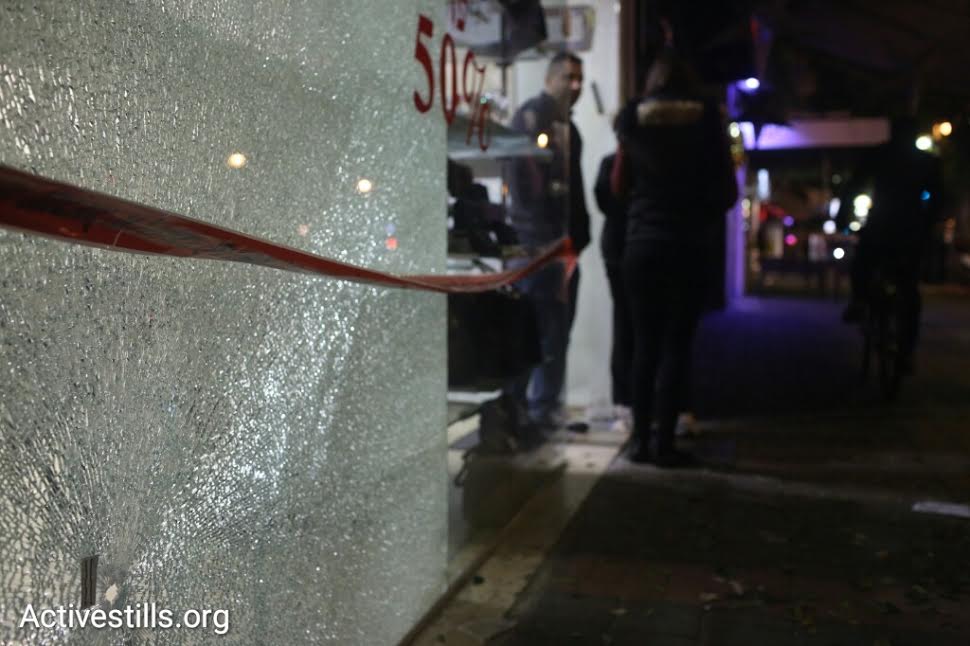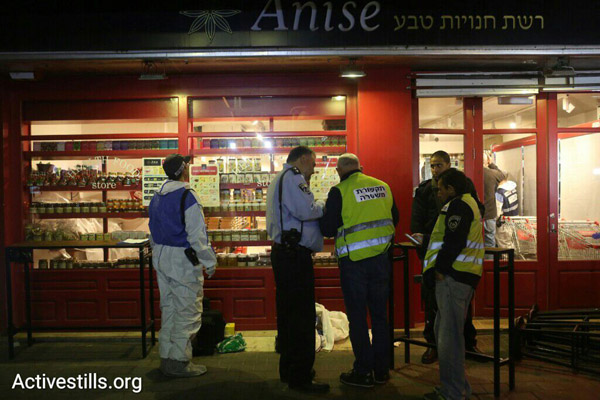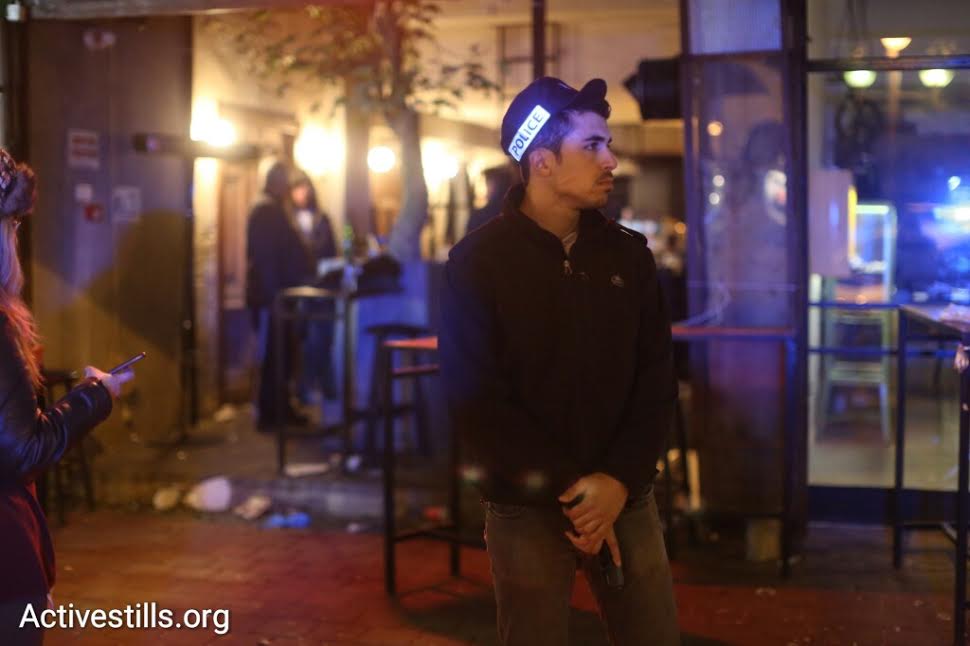Following Friday’s shooting attack in central Tel Aviv, the Israeli Right has called to allow more civilians to carry weapons.

Even now we still do not have all the necessary details about the horrific murder that took place Friday at Tel Aviv’s “Simta” bar, making it difficult to speak with certainty about the story. And yet, there are a few things we can say — both about the murder of Alon Bakal and Shimon Ruimi, and the way the media and political echelon has dealt with the tragedy.
Tel Aviv: One thing is sure, there is no justification for the special treatment Tel Aviv receives when it comes to murder and violence, as opposed to everywhere else in the country. This is especially noticeable in the media, which is shocked by the fact that “this” has come to Tel Aviv — whether it’s rockets from Gaza or terrorist attacks. As if rockets on Sderot or Ashkelon, or murders in Jerusalem, are routine, and murders in Be’er Sheva or Afula are more of the same. But a “terror attack in the heart of Tel Aviv” — as the top story on Ynet declared — now we really need to talk about it! Has anyone ever seen a headline reading “Attack in the heart of Rishon Lezion?”
No, there is nothing more or less horrifying about a murder in Tel Aviv. It can terrify us, those who live in the city, since it’s closer, more familiar, and the chance that we know the victims is greater. But even if the majority of journalists are from Tel Aviv, there is no reason this should be reflected in the coverage.
But it isn’t only the media that treats Tel Aviv differently. “Talkbackers” — those who leave comments on news articles — were quick to celebrate the “popping of the Tel Aviv bubble,” “now they’ll get it” read the comments. As if Tel Aviv is some terror-proof bubble, as if people haven’t been murdered here in the past, as if they haven’t been stabbed, as if buses haven’t been blown up here, as if there was no massacre at the Bar-Noar LGBT youth center, as if rockets never fell here during wartime, etc.
As if Tel Aviv is some island disconnected from the rest of the country. As if the murdered were simply “Tel Avivians” — despite the fact that neither of them are from Tel Aviv. As if people will stop spending time at cafes (they didn’t stop, many of them continued drinking their coffee as the killer was being pursued in the streets). As if one more murder will change the rich, multi-dimensional politics of this city.
The right to bear arms: The immediate response by Likud MK Amir Ohana was that he was planning on increasing the distribution of weapons to private citizens in the name of security. This is the continuation of Israel’s Minister of Public Security Gilad Erdan, who has already made it easier for civilians to carry weapons, canceling the restrictions on security guards to take their weapons with them after work. This is also the continuation of copying the American model of politics, with the Right in Israel importing the sickening fetish for more and more guns in the streets.

If there is anything we can learn from the attack, it is precisely how the proliferation of weapons puts civilian lives in danger. As far as we know, the automatic weapon used in the attack belongs to a family member of the killer. The same goes for hundreds of shooting deaths by authorized weapons every year in the U.S., often caused by the availability of lethal weapons. This is exactly what led President Obama to announce on Friday that he will seek to use his executive powers to tackle the problem of gun violence.
The Israeli “Gun Free Kitchen Tables” campaign has for years been highlighting the fact that violence of security guards who take their weapons home disproportionately affect women. After more and more women were murdered, the campaign’s success reached a fever pitch, pushing the authorities to enforce the law against taking home weapons. The result: not a single woman was murdered by her security guard partner. But now Erdan wants to reverse all that.
For Amir Ohana, it seems these women are nothing more than an unintended consequences, as he wrote on his Facebook page. But now we can easily see that not only women are in danger, but all of us.
Terror: It is too early to determine and fully understand what happened Friday at the bar, but what is clear is that we cannot simply look at it as simply another form of terror. In the first hours following the attack, the biggest question on everyone’s mind was whether the attacker was a “minority,” which would mean he was a “terrorist” and that the event was a “terror attack.” The other option? That the attack was Jewish, and therefore it was likely “criminally-motivated” — or in other words: less frightening and less upsetting.

What we know is that the killer is likely mentally unstable — potentially as a result of the killing of his cousin at the hands of Israeli Police (no one was ever charged for the killing) — and who was already convicted of trying to steal a weapon from an Israeli soldier. The family of the alleged perpetrator also claim that his mental state has deteriorated over the past few years. On the other hand, there is no proof that he made any political or jihadist-related declarations — neither in the past nor in the lead-up to the murder.
Does this meet the criteria for terrorism on nationalistic grounds? Likely not. Yes, the murder of two people in a bar and the wounding of others in the middle of the day terrifies all of us. In this sense, the killings were an act of terror. But so are mob hits or school shootings in the U.S.
So what do we do? First of all respond to the event as it is, not according to what we have decided it is based on previous knowledge or outright racism (after all, it didn’t stop groups of people from yelling “death to Arabs” in central Tel Aviv on Friday). The police needs to do its job, find the murderer, and put him on trial. There is no legitimacy for destroying his home or torturing his relatives, who were the first to call the police and help. Moreover, we must not respond to this incident differently than any other murder simply because it happened in Tel Aviv. And we must think long and hard about our policies vis-a-vis distributing weapons to civilians.
This article was first published in Hebrew on Local Call. Read it here.


